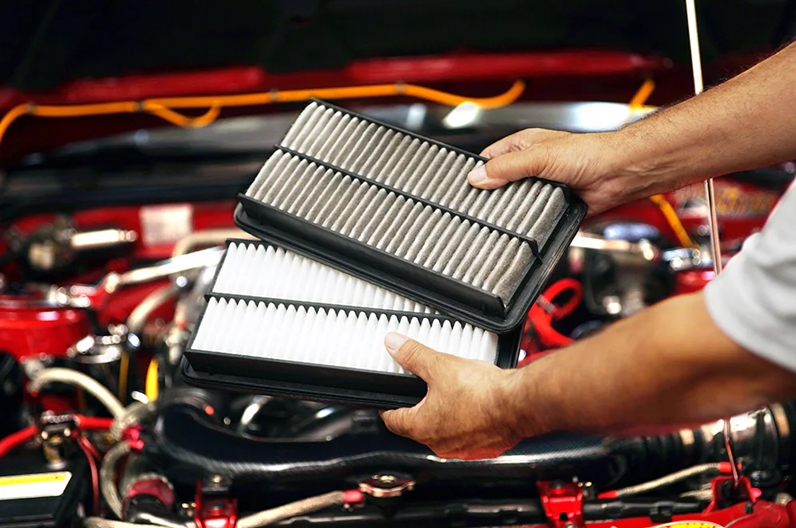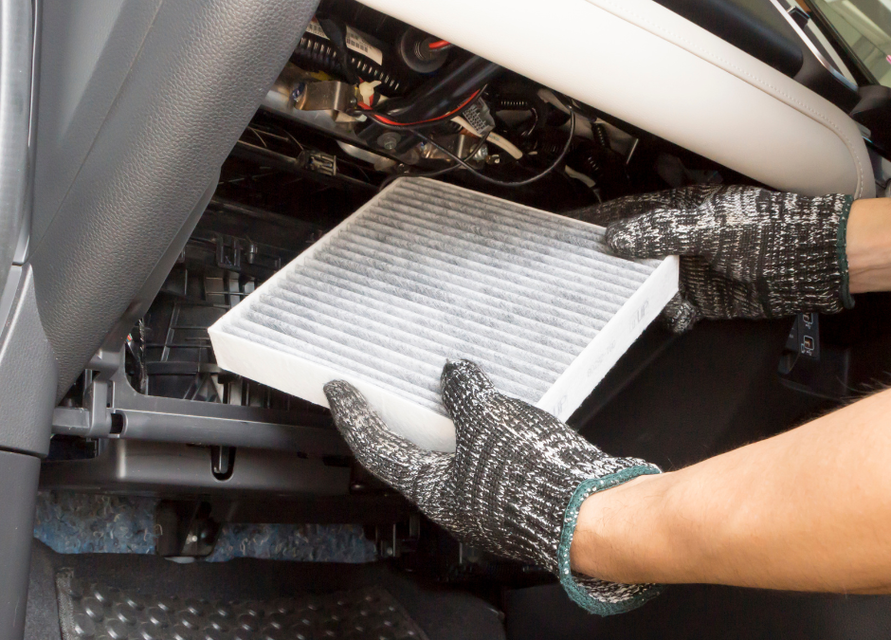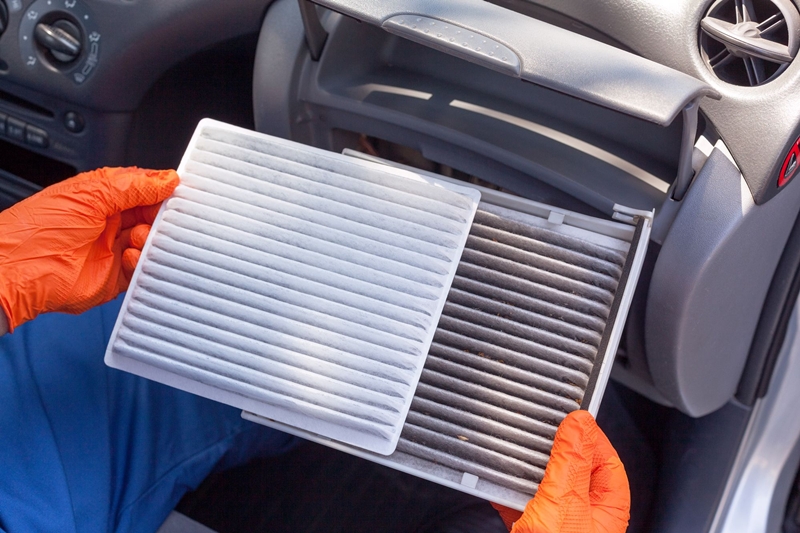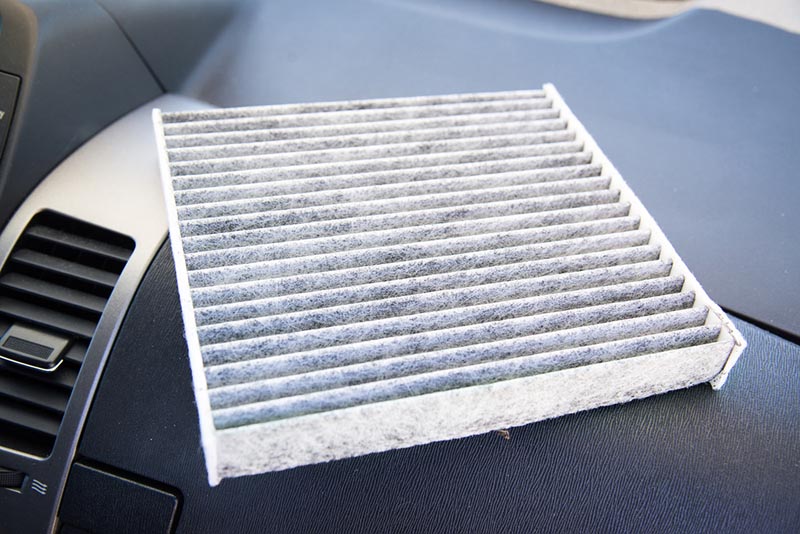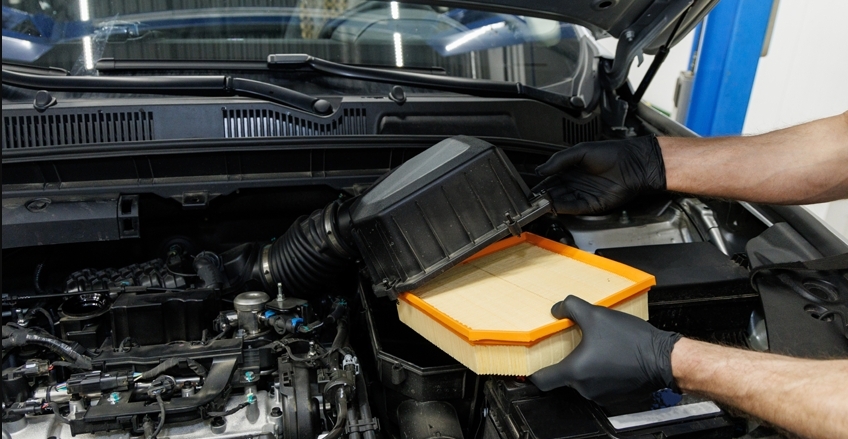When it comes to car maintenance, the debate of air filter vs cabin air filter often flies under the radar—until something goes wrong. But here’s the thing: your vehicle actually has two distinct air filters, and mixing them up can lead to unnecessary expenses or even damage. Understanding the difference between your engine air filter and cabin air filter is crucial, especially when it comes to replacement choices like OEM versus aftermarket options.
Also read: How to Replace Your Cabin Air Filter in 7 Simple Steps for a Fresher Ride
Quick Stats & Fun Facts: Air Filter vs Cabin Air Filter
- Over 70% of car owners don’t know the difference between an air filter vs cabin air filter, according to a recent auto maintenance survey.
- A clogged cabin air filter can reduce HVAC airflow by up to 40%, making your AC work harder and wear out faster.
- Replacing a dirty engine air filter can improve acceleration time by 6–11%, especially in older vehicles.
- In most climates, your air filter vs cabin air filter should both be replaced every 12,000–25,000 miles—but if you drive in dusty, polluted, or urban environments, you may need to do it more often.
- Cabin air filters can trap pollens, mold spores, and even exhaust fumes, helping you breathe cleaner air—especially helpful for allergy sufferers.
- Replacing both filters usually costs less than $50 if you do it yourself, but skipping them can cost hundreds in engine or HVAC repairs.
- Fun fact: Your car’s air filter vs cabin air filter may look similar, but they serve totally different roles—one keeps your engine breathing, the other keeps you breathing!
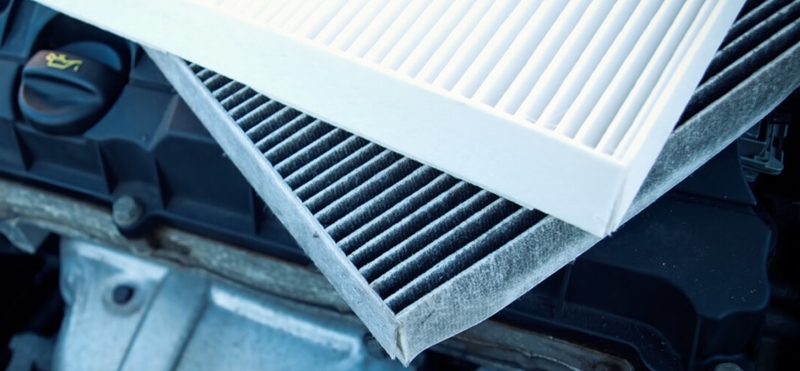
What’s the Difference Between Air Filter and Cabin Air Filter?
Think of your car as having two separate respiratory systems. Your engine air filter is like the lungs for your engine, while the cabin air filter acts as an air purifier for you and your passengers. The air filter vs cabin air filter comparison is more than just semantics—it’s about function, placement, and performance.
Also read: Finding the Best Cabin Air Filter for Your Vehicle: A Complete Guide
Engine Air Filter: Your Car’s Breathing System
The engine air filter sits between your engine and the outside world, typically housed in a rectangular or round box near the engine bay. Its job is simple but essential—keeping dirt, leaves, and debris from entering your engine’s combustion chambers.
A clean air filter is vital because it ensures only clean air mixes with fuel during combustion. This helps protect sensitive engine components like pistons, cylinders, and valves. Neglecting your engine air filter can reduce performance, hurt fuel economy, and in extreme cases, cause engine damage.
Cabin Air Filter: Your Personal Air Cleaner
Now, let’s switch focus in the air filter vs cabin air filter discussion to the interior. The cabin air filter is located behind the glove box or under the dashboard and filters the air coming through your HVAC system.
Every time you use the heat, AC, or fan, air flows through this filter before reaching you. It traps pollen, dust, smog, and other airborne irritants. A dirty cabin air filter can make your drive uncomfortable—especially if you have allergies or sensitivity to air pollutants.
📊 Quick Comparison: Air Filter vs Cabin Air Filter
| Feature | Engine Air Filter | Cabin Air Filter |
|---|---|---|
| Main Function | Protects engine by filtering intake air | Filters interior air for driver/passenger comfort |
| Location | Under the hood, in air intake system | Behind glove box or under dashboard |
| Maintenance Interval | Every 12,000–15,000 miles (or more in dusty areas) | Every 12,000–25,000 miles (sooner in polluted areas) |
| Symptoms When Dirty | Reduced fuel efficiency, poor acceleration, engine noise | Musty smell, weak airflow, allergy symptoms |
| Affects Vehicle Performance | Yes—engine performance and fuel economy | No—comfort and HVAC system efficiency only |
| Warranty Concerns | Can void warranty if neglected and causes engine damage | Unlikely to void warranty unless HVAC damage occurs |
| DIY Difficulty | Easy to moderate | Easy |
Download comparison table
How to Tell Which Filter Is Causing the Problem
When you’re trying to figure out what’s wrong with your car, it’s easy to confuse symptoms caused by a dirty engine filter with those caused by a clogged cabin filter. That’s where understanding the air filter vs cabin air filter difference becomes crucial. Both are small parts with big impacts—but they serve totally different purposes.
A dirty engine air filter affects how your vehicle performs, while a cabin air filter influences your comfort and the quality of the air you breathe inside the car. Mixing up the two can lead to wrong diagnoses, wasted money, or overlooked issues that continue to cause frustration.
So how can you tell which one is causing the problem? This simple air filter vs cabin air filter troubleshooting checklist will help you match common symptoms with the correct culprit. Whether you’re experiencing poor acceleration, musty smells, or weak airflow, you’ll know what to check first—and what to replace.
Use the chart below to get a quick read on whether it’s time to clean up your car’s lungs—or yours.
Troubleshooting Checklist: Is It the Engine or Cabin Air Filter?
| Symptom | Likely Culprit | What to Do |
|---|---|---|
| Sluggish acceleration | Engine Air Filter | Check for clogs or dirt buildup |
| Drop in fuel efficiency (MPG) | Engine Air Filter | Replace if dirty to restore performance |
| Check engine light suddenly came on | Engine Air Filter | Inspect for severe blockage; scan for codes |
| Musty or unpleasant smell from vents | Cabin Air Filter | Replace to eliminate trapped odors |
| Weak airflow from AC/heater vents | Cabin Air Filter | Check for clogging or debris |
| Sneezing, coughing, or allergy flare-ups inside | Cabin Air Filter | Switch to a clean or HEPA-grade filter |
| Loud engine noise during acceleration | Engine Air Filter | A restricted filter may force airflow |
| Whistling or unusual HVAC noises | Cabin Air Filter | Debris may be obstructing the system |
Download the trouble shooting checklist
OEM vs Aftermarket Filters: Making the Right Choice
Whether you’re replacing an engine air filter or a cabin air filter, you’ll need to choose between OEM and aftermarket options.
OEM Filters: The Safe Bet
OEM filters are made by the same manufacturers that supplied the original parts for your vehicle. They’re designed to meet the exact specifications set by your car’s maker.
Pros:
- Perfect fit—no guesswork
- Meets manufacturer airflow specs
- Consistent quality and filtration performance
- Keeps your warranty intact
Cons:
- Usually more expensive
- May be harder to find outside dealerships
- Fewer choices for high-performance needs
Aftermarket Filters: Variety and Value
Aftermarket filters, made by third-party brands, offer more variety in terms of price and performance. But when comparing options in the air filter vs cabin air filter space, be sure the one you choose actually meets your car’s requirements.
Pros:
- Lower prices and wider availability
- Choices from basic to high-performance
- Some offer longer lifespans or better filtration
- Trusted brands like Bosch, WIX, K&N, and Fram
Cons:
- Quality varies by brand
- Cheap filters might not fit right or filter well
- May void warranty if damage occurs
- Extra research required for compatibility
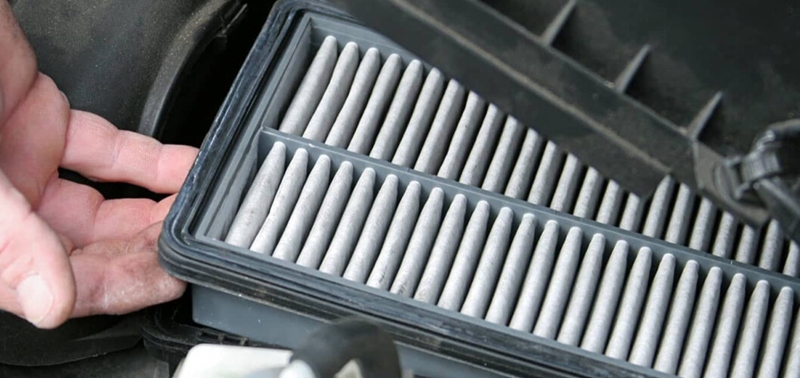
The Bottom Line on Air Filter vs Cabin Air Filter and OEM vs Aftermarket
When it comes to air filter vs cabin air filter, know that both are crucial—just in different ways. Your engine air filter keeps your car running efficiently, while the cabin air filter keeps you breathing clean air. Whether you go OEM or aftermarket, choose quality over price alone. For most people, a solid aftermarket option from a trusted brand offers great performance and value.
If your vehicle is still under warranty, OEM might give you peace of mind. But for older cars or those needing a performance boost, aftermarket filters open the door to more options—just be sure to do your homework.
Maintenance Tips for Both Filters: Air Filter vs Cabin Air Filter
Proper maintenance is key when it comes to your vehicle’s overall performance and interior comfort. Understanding how to care for both components in the air filter vs cabin air filter discussion can save you money and keep your car running—and smelling—like new.
Your engine air filter is essential for clean combustion and smooth engine operation. Neglecting it can reduce fuel efficiency and even cause long-term damage.
- Check every 12,000–15,000 miles, or as outlined in your owner’s manual
- Inspect sooner if you notice sluggish acceleration or poor fuel economy
- In dusty or off-road conditions, inspect and replace more frequently
- Visually inspect the filter—if it looks dark, clogged, or brittle, it’s time to replace it
Cabin Air Filter Maintenance
When considering air filter vs cabin air filter upkeep, don’t forget the one that affects your breathing! The cabin air filter directly impacts air quality inside your vehicle.
- Replace every 12,000–25,000 miles, depending on climate and driving conditions
- Check sooner if airflow from vents feels weak or if you notice persistent odors
- City driving and polluted areas may require more frequent changes due to smog, pollen, and dust
- If you or your passengers suffer from allergies, staying on top of cabin filter maintenance is a must
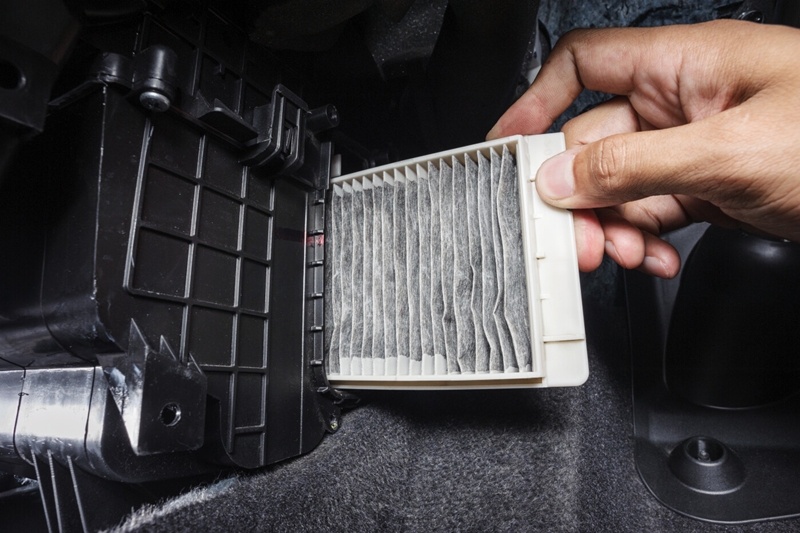
Buyer’s Guide: Choosing the Right Filter for Your Car
Choosing the right filter starts with knowing what you need. Here’s a quick buying guide to help you navigate the air filter vs cabin air filter landscape.
Know Your Vehicle
Check your owner’s manual or use online parts lookup tools (like those from AutoZone or RockAuto) to find the exact filter type and size.
OEM vs Aftermarket
- OEM Filters: Made to manufacturer specs, great fit, higher cost
- Aftermarket Filters: Cheaper, more variety, quality varies—look for trusted brands like Bosch, WIX, K&N, and Fram
Driving Conditions Matter
- Urban drivers should replace cabin air filters more often due to pollution
- Off-road or dusty environments require more frequent engine air filter changes
- Allergy sufferers should prioritize higher-efficiency cabin filters (like HEPA-grade options)
DIY-Friendly
Most filters are easy to replace at home—no shop visit needed. Many auto parts stores will even install them for free when you buy in-store.
Frequently Asked Questions: Air Filter vs Cabin Air Filter
How often should I change car air filters for hybrid or electric vehicles?
For hybrids, the engine air filter still needs regular replacement because there’s an internal combustion engine involved. Since the engine doesn’t always run, you might be able to stretch intervals a bit—check your owner’s manual for specifics. Still, don’t wait too long; a clogged filter can affect performance and efficiency.
In the air filter vs cabin air filter discussion, electric vehicles don’t have engine air filters at all. However, they do have cabin air filters, and they’re even more important in EVs. Without engine noise, you’ll notice poor airflow much faster. Plan to replace your cabin air filter every 12,000 to 25,000 miles or at least once a year.
Can a dirty air filter cause the check engine light to come on?
Yes—particularly a dirty engine air filter. If it’s badly clogged, it can restrict airflow and mess with the air-fuel mixture your engine depends on. That may cause sensors like the mass airflow sensor (MAF) to send incorrect signals, which could trigger the check engine light.
On the other hand, a dirty cabin air filter won’t cause engine trouble or illuminate the check engine light. However, it will affect your comfort by reducing airflow through the HVAC system.
Does driving with a clogged filter void my warranty?
Potentially. If a neglected engine air filter leads to damage—say, dirty air damaging pistons or reducing airflow enough to cause overheating—your warranty claim could be denied. Manufacturers require you to follow routine maintenance, which includes timely air filter replacements.
In the air filter vs cabin air filter conversation, the cabin filter is less critical to warranty concerns. But ignoring it could still wear down your HVAC components, especially the blower motor.
How do I know if I need a new air filter or cabin air filter?
Here’s how to spot the signs:
- Engine Air Filter: Reduced acceleration, decreased fuel economy, engine misfires, or odd engine noises.
- Cabin Air Filter: Musty smell from vents, weak airflow, or allergy flare-ups while driving.
If you’re debating air filter vs cabin air filter symptoms, ask yourself: Is the car struggling to run well, or are you just sneezing and feeling stuffy inside? That usually reveals the culprit.
Can I replace air filters myself, or should I go to a mechanic?
Most people can replace both engine and cabin air filters at home with just a screwdriver or basic tools. Many cars make it especially easy—just pop the hood or open the glovebox. There are plenty of YouTube tutorials for your specific model.
If you’re unsure whether you’re dealing with the engine or cabin filter, refer to your owner’s manual or do a quick online search with your make and model. Knowing the air filter vs cabin air filter difference is key here—one helps your engine breathe, the other helps you breathe.
What happens if I never change the cabin air filter?
Over time, your cabin air filter becomes clogged with dust, pollen, and pollutants. If it’s not replaced:
- HVAC airflow decreases
- Strange smells may develop
- The blower motor can overheat
- You and your passengers breathe in more irritants
It won’t cause engine damage, but neglecting your cabin filter can still make your driving experience pretty miserable—especially during allergy season.
Is there a big price difference between engine and cabin air filters?
Usually, engine air filters are a bit more expensive due to their size and design. But prices vary depending on brand and whether you choose OEM or aftermarket.
In the air filter vs cabin air filter comparison, cabin filters might be cheaper, but replacing both at once is often recommended. They serve different systems, but both are essential to your car’s performance and your comfort.
Environmental Impact: Why Filters Matter Beyond Your Car
When comparing the air filter vs cabin air filter, it’s easy to focus only on performance and comfort—but both play a surprising role in your car’s environmental footprint.
A clogged engine air filter restricts airflow, causing your engine to burn more fuel than necessary. This not only hurts your gas mileage but also increases your car’s emissions. In fact, a neglected air filter can raise your carbon output by 10% or more, adding to air pollution and climate impact.
Meanwhile, your cabin air filter helps reduce your exposure to airborne pollutants. In urban areas, these filters capture fine particulates, allergens, and even toxic gases like ozone and nitrogen dioxide. Changing your cabin filter regularly keeps the car’s interior air cleaner—especially important for people with asthma or allergies.
Choosing a high-quality, eco-friendly filter—whether OEM or aftermarket—can also reduce waste. Some filters are even recyclable or reusable, which makes a big difference over time.
So the next time you think about skipping a filter change, remember: the air filter vs cabin air filter decision doesn’t just affect your car—it affects the planet, too.
Need a mobile mechanic? Find one on the Mobile Mechanic Directory
Conclusion: Why Understanding Air Filter vs Cabin Air Filter Matters
When it comes to keeping your vehicle in top shape, knowing the difference between an engine air filter and a cabin air filter isn’t just trivia—it’s essential maintenance knowledge. In the ongoing air filter vs cabin air filter comparison, each filter serves a completely different purpose:
- The engine air filter ensures your car runs smoothly and efficiently by protecting internal components from harmful debris.
- The cabin air filter protects you—filtering the air you breathe inside the cabin for a more comfortable and healthy ride.
Whether you’re driving a hybrid, a gas-powered SUV, or a fully electric car, proper filter maintenance can extend the life of your vehicle and improve your daily driving experience. From improved engine performance to cleaner cabin air, both filters deserve regular attention.

